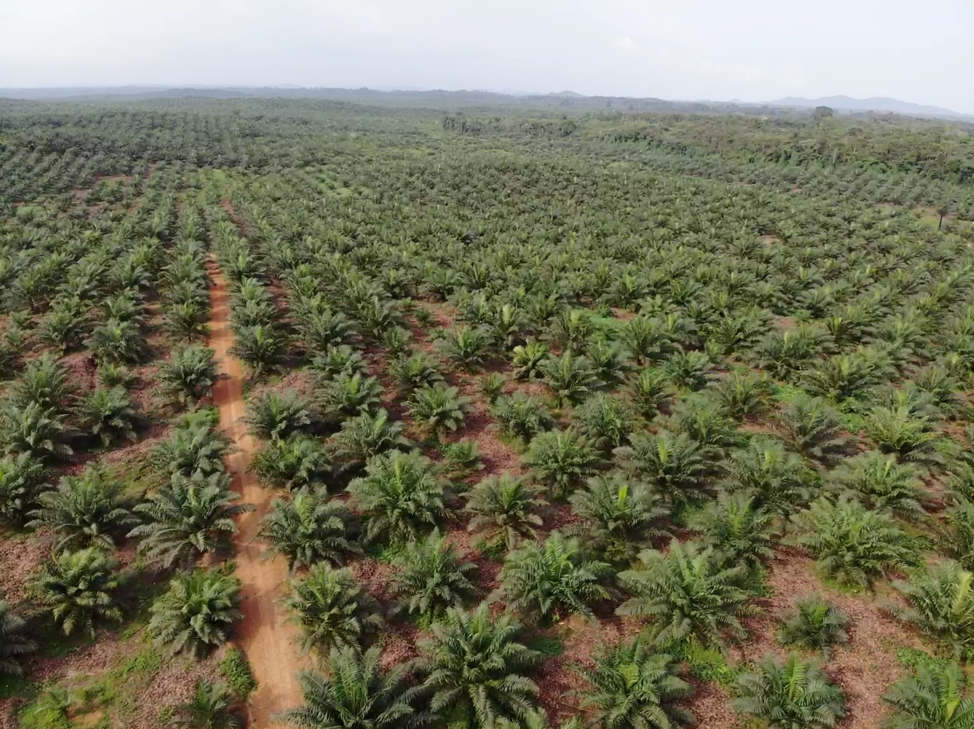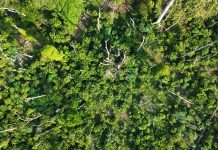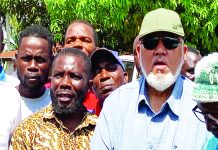Banner Image: Ariel view of a portion of the Palm Bay Estate of Equatorial Palm Oil’s (EPO) covering 6,400 hectares of land in Jogbahn Clan in District No.4, Grand Bassa County. The DayLight/James Harding Giahyue
By James Harding Giahyue
MONROVIA – Campaigners from civil society organizations in Liberia on Thursday received training on the Accountability Framework initiative (AFi), a new tool for advocacy in the agriculture and forestry sectors.
AFi was introduced in 2019 by a host of international nongovernmental organizations, including Proforest, Rainforest Alliance and the Meridian Institute. Combining international and local laws, policies, principles and best practices, it provides a standard for civil society’s advocacy for agriculture and forest-related companies to produce sustainably. It aims to reduce private sector-related deforestation and foster strict adherence to respect for human rights and secure benefit for local communities where these firms operate.
Campaigners at the Sustainable Development Institute (SDI)—which organized the one-day training workshop alongside Proforest Ghana—said it will help land and forest rights groups monitor companies and ensure they comply with social, environmental and economic standards.
“This is very important to us as civil society organizations,” said James Otto, who heads SDI’s community rights and corporate governance program, told participants at the opening of the daylong event. “This is going to be a build-on training so that the framework is actually implemented in Liberia.”
“This is our opportunity in Liberia to understand what [AFi] is and see the linkages with our own efforts that we are making already, and see who we are going to take it and apply it in Liberia,” said Silas Siakor, one of the facilitators of the event
Siakor said coronavirus posed some challenges to the new initiative as it was established in the same year of the pandemic but momentum for the tool has started to take off. “The idea is really to drive stakeholders to take the concept and work with it,” he added.
Liberia has made significant strides to ensure its natural resources are managed in a sustainable manner since the end of a brutal 14-year civil war, which ended in 2003. It began with the reform of the country’s forestry sector a year later. The country created a new land law in 2018 that recognizes customary land ownership, has national policies on free, prior and informed consent (FPIC), and the principles and criteria of the Roundtable on Sustainable Palm Oil (RSPO). It has its own oil palm strategy
On top of that, the country has already signed onto a horde of international principles. They include the United Nations Principles on Business and Human Rights, efforts to reduce emissions from deforestation and forest degradation and foster conservation, sustainable management of forests, and enhancement of forest carbon stocks (REDD+), and the Tropical Forest Alliance (TFA).
Nana Darko Cobbina, the training facilitator from Proforest, said AFi does not duplicate those efforts. It complements them and links the forestry and agriculture sectors.
“The framework aims to bring greater clarity, consistency, effectiveness, and accountability for supply chain commitments and their implementation and monitoring,” Cobbina told participants. “It embeds common approaches and good practices in standards, tools, policies, and initiatives for responsible production and trade.”






Facebook Comments